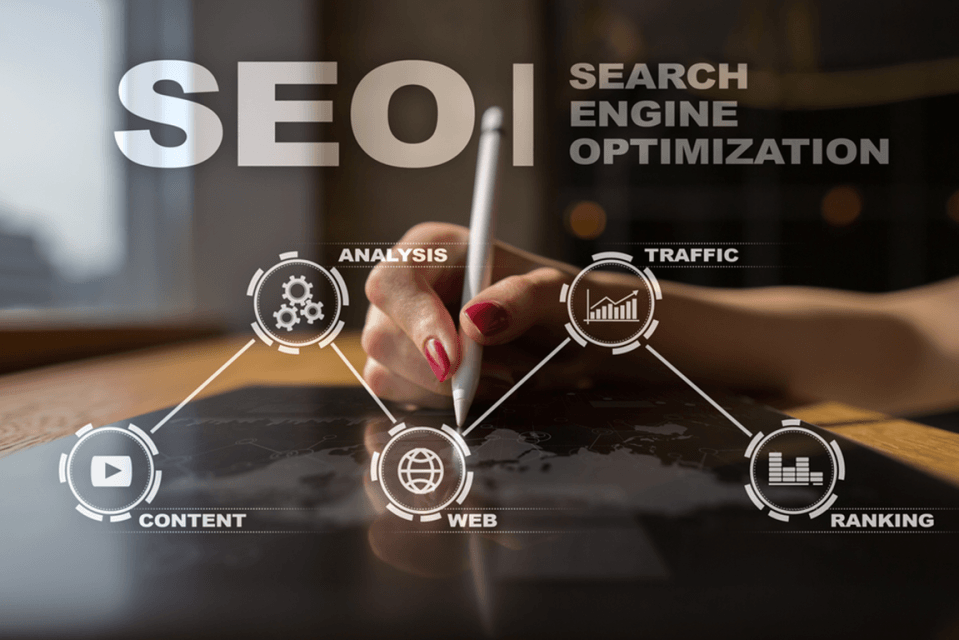In today’s digital age, the success of any business largely hinges on its online presence. As the internet continues to expand, so does the competition among businesses to capture the attention of potential customers. This is where Search Engine Optimization (SEO) plays a pivotal role. At [Your Company], we understand that mastering SEO is essential for driving traffic, increasing visibility, and achieving digital marketing success. Let’s explore the profound impact of SEO on digital marketing and why it is indispensable for any business striving to succeed online.
Understanding SEO
What is SEO?
Search Engine Optimization (SEO) is the process of enhancing a website’s visibility on search engines like Google, Bing, and Yahoo. By optimizing various elements of a website, SEO aims to improve its ranking on search engine results pages (SERPs). Higher rankings increase the likelihood of attracting organic (non-paid) traffic, which is essential for building brand awareness and driving conversions.
Key Components of SEO
1. Keyword Research
Keyword research involves identifying the words and phrases that potential customers use to search for products or services related to your business. Using the right keywords in your content helps search engines understand the relevance of your site, improving its visibility.
2. On-Page SEO
On-page SEO refers to optimizing individual web pages to rank higher and earn more relevant traffic. This includes elements like meta tags, headers, URL structure, and content quality. Ensuring that each page is optimized for specific keywords is crucial for on-page SEO success.
3. Off-Page SEO
Off-page SEO involves activities conducted outside your website to improve its ranking. This primarily includes building high-quality backlinks from reputable sites. Backlinks act as endorsements, signaling to search engines that your content is valuable and trustworthy.
4. Technical SEO
Technical SEO focuses on improving the technical aspects of a website to enhance its visibility. This includes site speed, mobile-friendliness, secure sockets layer (SSL) encryption, and structured data. A technically sound website provides a better user experience and is favored by search engines.
The Importance of SEO in Digital Marketing
1. Increased Visibility and Traffic
The primary goal of SEO is to improve your website’s visibility on search engines. Higher visibility leads to increased organic traffic, which is more likely to convert into leads and sales. Effective SEO strategies ensure that your site appears in front of users actively searching for your products or services.
2. Cost-Effective Marketing
Compared to paid advertising, SEO is a cost-effective digital marketing strategy. While it requires time and effort to implement, the long-term benefits of organic traffic far outweigh the costs. Unlike paid ads, which stop generating traffic once you stop paying, the effects of SEO are long-lasting.
3. Building Credibility and Trust
Websites that rank higher on SERPs are often perceived as more credible and trustworthy by users. Implementing SEO best practices helps establish your brand as an authority in your industry. High-quality content, user-friendly design, and reputable backlinks all contribute to building trust with your audience.
4. Improved User Experience
SEO isn’t just about pleasing search engines; it’s also about providing a better user experience. Factors such as site speed, mobile optimization, and easy navigation are crucial for retaining visitors. A well-optimized site enhances user satisfaction, leading to higher engagement and conversion rates.
5. Competitive Advantage
In today’s competitive digital landscape, SEO gives you an edge over competitors. By ranking higher in search results, you can attract more traffic and HVAC System potential customers than your rivals. Staying ahead in SEO means continuously adapting to algorithm changes and evolving user behavior.
SEO Best Practices for Digital Marketing Success
1. Create High-Quality Content
Content is the backbone of SEO. Creating informative, engaging, and valuable content attracts users and encourages them to stay on your site longer. Regularly updating your blog, creating detailed guides, and offering unique insights help establish your authority and improve your rankings.
2. Optimize for Mobile
With the majority of searches now conducted on mobile devices, having a mobile-friendly website is crucial. Ensure your site is responsive, loads quickly, and provides a seamless experience across all devices.
3. Use Analytics to Monitor Performance
Regularly track and analyze your SEO performance using tools like Google Analytics and Search Console. These tools provide insights into traffic sources, user behavior, and keyword rankings, helping you refine your strategy for better results.
4. Focus on Local SEO
For businesses targeting local customers, local SEO is essential. Optimize your Google My Business profile, acquire local backlinks, and encourage customer reviews to boost your visibility in local search results.
5. Stay Updated with Algorithm Changes
Search engine algorithms are constantly evolving. Staying informed about the latest updates and adjusting your SEO strategies accordingly is vital for maintaining and improving your rankings.
Conclusion
The impact of SEO on digital marketing success cannot be overstated. By increasing visibility, driving organic traffic, building credibility, and improving user experience, SEO lays the foundation for a successful online presence. At [Your Company], we are committed to helping businesses harness the power of SEO to achieve their digital marketing goals. Implementing effective SEO strategies today ensures sustainable growth and a competitive edge in the digital marketplace.


